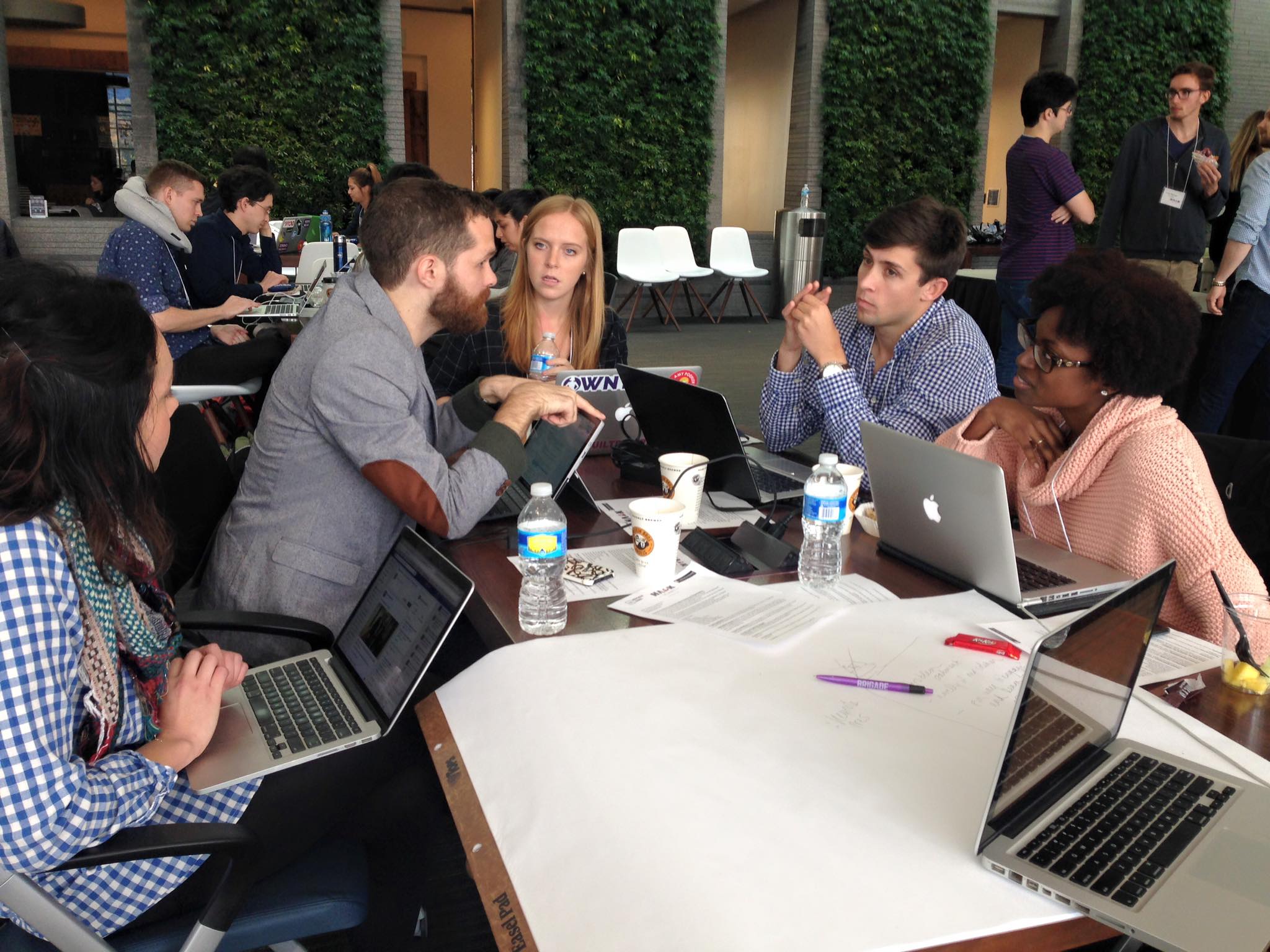On Nov. 8, the Institute of Politics and Public Service (IPPS) hosted Independent Journal’s (IJ) Hack the Debate. The event was a day-long hackathon, or software development competition, during which participants discussed and developed potential apps intended to interest the next generation of voters in following the 2016 American presidential election debate process.
“Hack the Debate is an opportunity for developers, coders, designers and project managers to create technological tools and form innovative app solutions geared toward encouraging millennial participation in America’s presidential debate process,” according to the Hack the Debate website. The day consisted of a series of talks and hacking sessions, during which teams engaged in collaborative computer programming and coding.
IJ Founder and President Alex Skatell and IPPS Executive Director Mo Elleithee both spoke at Hack the Debate. Throughout the day, there were two “Tech Talks,” each with its own set of panelists and topic concerning the integration of tech innovation into politics.
In compiling Hack the Debate’s featured speakers, panelists, and judges, Skatell said IPPS and IJ tried to find “people who are right in the thick of things or have really good ideas and perspective from past experience with debates, in politics, or in public service” to listen to the “best and brightest around the country” as they provide ideas on how to engage the younger generation. Hack the Debate featured digital innovators, political minds, and journalists who lent their expertise throughout the day
The first Tech Talk, “Inside the Campaign Debate,” featured a panel discussion on the way in which leading digital and political organizations are affecting and preparing for the upcoming 2016 presidential debates. The second, “2016 is the Year of the Debate – Thanks to Technology,” concerned digital innovation’s role in evolving the 2016 presidential debates. Panelists included Matt Compton and Gerrit Lansing, the digital directors of the Democratic National Committee and Republican National Committee, respectively, and Sean Evins from the Twitter Government & Politics Team.
Katie Harbath, director of Facebook Public Policy Division, and Robin Sproul, ABC News vice president & Washington bureau chief served as judges for the hackathon.
On Feb. 6, 2016, IJ is to partner with ABC News to host the New Hampshire Republican Primary debate, for which IJ came up with the idea of Hack the Debate. Talks between IJ and IPPS for Hack the Debate began at the beginning of the semester. Skatell said, “I think anytime you have an opportunity to reach as many people as these debates do – 24 million people watched the first debate, more than watch the World Series – not listening to young people and listening to people’s ideas on how to make it a better process is a mistake and a misopportunity.”
According to Skatell, one of IJ’s main goals is to engage its audience, which includes many young people and people not typically focused on politics and the presidential process.
“This is a cutting-edge company trying new things, not pretending it has all the answers but coming to young people, coming to students, coming to Georgetown students and asking them to come up with a solution,” said Elleithee.
“People say that millennials are disengaged. I don’t believe that,” Elleithee said. “I just think that people with as much gray hair as I have don’t know how to communicate. IJ has figured it out … to have the conversation about political engagement with young people on their terms, using their tools, using their language.”
Concerning technology and politics, Elleithee said, “We’re all constantly looking at the technology side of politics, because they are so interwoven as a tool for organizing, as a tool for mobilizing, as a tool for communicating. It’s changing the way politics is done today, for better and for worse.”
Elleithee and Skatell, who sits on the IPPS Advisory Board, both see future involvement between IJ and IPPS. “I’ll definitely stay involved and continue to provide help and perspective whenever I can around media, politics, government, and be helpful in any way that I can … ,” said Skatell. “If there’s a way that IPPS can lean on IJ to help get young people engaged and into these important topics, then that’s great.”







